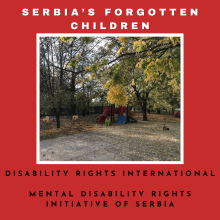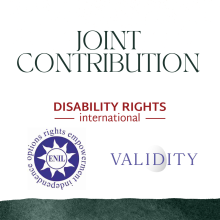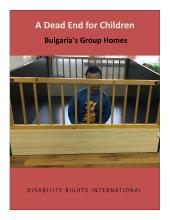Serbia’s Forgotten Children
Date
This report, Forgotten Children of Serbia, is based on findings of investigations conducted from 2019 to the present by DRI and the Mental Disability Rights Initiative of Serbia (MDRI-S) and, focusing especially on children, shows that these human rights concerns have been permitted to continue. The Serbian government has been put on notice about the atrocious conditions, abuse, and torture taking place in its facilities through years of advocacy by DRI, MDRI-S, and other allies and has failed to take action or hold abusers accountable.



